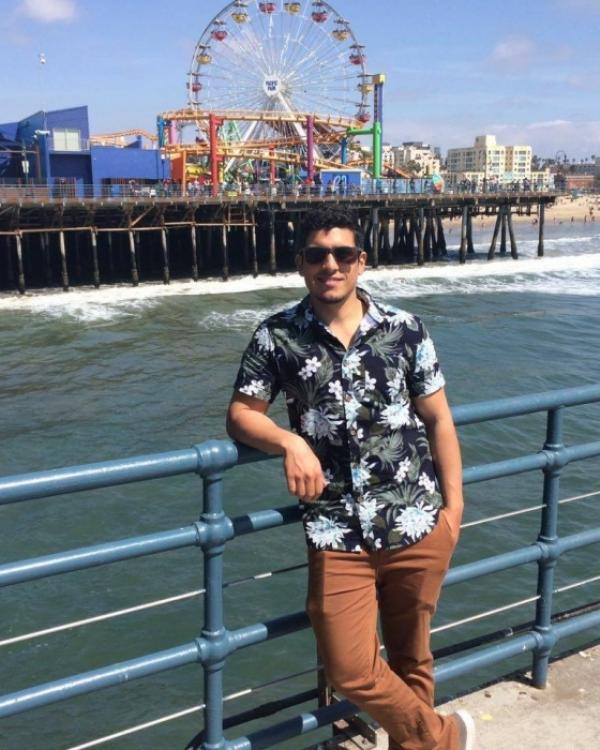
Javier Pulgar will be graduating with a Ph.D. from the Department of Education before returning to his home of Concepción, Chile this summer. Prior to attending UC Santa Barbara, he taught Physics there at Universidad del Bio Bio. Much of his work at the Gevirtz School has been devoted to developing models that allow educators to understand the effectiveness and originality of groups when designing solutions to particular problems in physics. He set aside a moment to share his interests and advice for future Gevirtz School students.
GGSE: Share your research interests with us, and why they’re important to you.
Pulgar: My research interests begin with physics education at university, with an emphasis on creativity for problem solving. The extent to which these elements interact beyond what individuals can achieve by themselves in the context of university classrooms led me to dig deep into the literature of social networks, which later enabled me to understand the different social mechanisms under which creativity and learning may emerge. With this in mind, I have been reflecting and working on different ways in which physics curriculum, learning activities, and instruction affect the social dimension in the classroom, or whether these foster students’ interactions and collaboration in the pursuit of academic objectives. The ultimate goal is to successfully design learning environments where students can develop not only disciplinary content knowledge, but also the needed social competencies for awareness and success in today’s world, that would guide them to creative and innovative ideas.
The importance of pursuing the mentioned research goals relates to my experience as a physics instructor in my home country (Chile), where I became aware of the individualistic approach physics courses were taking, which contradicts the current shift towards the demand of social competencies for creativity and innovation, defined as key abilities in today’s knowledge economy. But my research is not only motivated by greater creative outcomes, as there are societal problems that have fueled my efforts to introduce collaborative values in university classrooms. These respond to a demand of generosity, a value that comes from knowing, respecting, and sometimes caring for the person that is sitting or living nearby. As naïve as this may sound, there is a chance for this to make understand that collective well-being brings more positive consequences than mere individual success, but who knows?
GGSE: If you could give one piece of information that you wished every person knew and remembered from your research, what would it be?
Pulgar: I’d like for this to be regarding the social approach I emphasized above. Even though my research is not unique nor totally original, transferring collective values into physics education is, in my eyes, an important recombination of ideas that became possible thanks to many hours of deep reflection and conversations.
GGSE: What do you hope to do after earning your Ph.D.?
Pulgar: Once I graduate, my family and I will move back to Concepcion, Chile, where surfing is as good as here in California, but with colder water. Regarding academics, fortunately I came to UCSB as a faculty member of the physics department at Universidad del Bio Bio, a public institution in southern Chile. Over there I would have a chance to teach physics to engineering students, as well as educators interested in doing research in science education.
GGSE: What piece of advice would you pass on to future graduate students in the Gevirtz School?
Pulgar: Work hard, but have fun. Time is limited and we owe it to ourselves to take chances, make mistakes, and learn alongside friends and colleagues. This comes with the advice of honoring your wishes and passions in order to engage on projects that speak to your true self. Sometimes we tend to accept ‘cheap’ academic opportunities that are unlikely to afford us any mental stability, nor the intellectual growth that we would have wished for, but we do it because it is a needed publication. Be cautious and aware of those academic endeavors that may cause more harm than good. And finally, build community, go out there and find good people, invest time with them, learn from them and the journey will be way better than if you decide to stay in your own island. At least it was that way for me. If you need advice and/or are interested in the type of work I do, do not hesitate to contact me, as I'd be happy to socialize with whomever is motivated to do it. (You can email Javier at jpulgar@education.ucsb.edu)